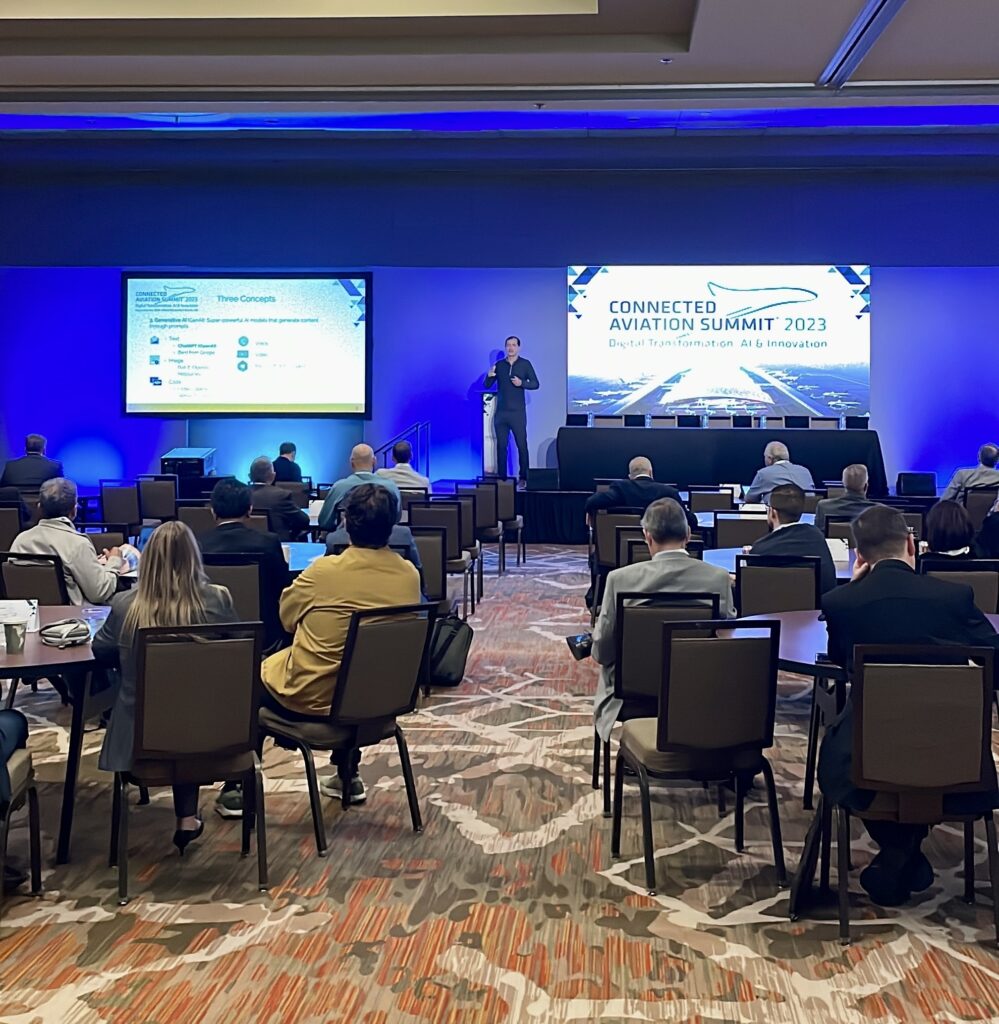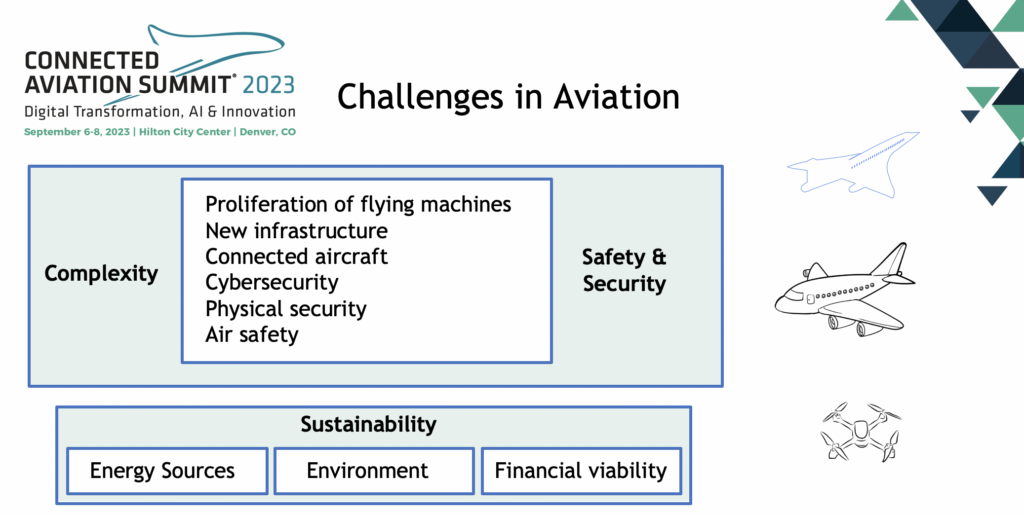AI Will Be “Everywhere” in Aviation, American Airlines Official Says


Tassio Carvalho, Sr. Manager at American Airlines overseeing Machine Learning and Optimization efforts, delivers the keynote presentation on Day 1 of the Connected Aviation Intelligence Summit. (Photo: Jessica Reed)
DENVER, Colorado — Artificial intelligence will eventually be “everywhere” within the airline industry, helping human employees do everything from booking flights to performing aircraft maintenance, possibly boosting productivity by billions of dollars, according to American Airlines’ senior manager of AI.
American Airlines has pilot programs for introducing AI and machine learning—a similar, but slightly different type of automated computer program—into almost every element of its operations, Tassio Carvalho said at the Connected Aviation Intelligence Summit.
Carvalho declined to share details of where American Airlines is currently deploying AI within its airline operations but gave several examples of how generative artificial intelligence and machine learning can boost productivity and improve efficiency.
“AI is going to be everywhere,” he said. “A recent study showed that this is worth one to two percent of revenue. So, [for] a large airline with $50 billion of revenue, this could be worth a billion dollars in productivity.”
Representatives of other airlines at the conference told Avionics that it was intriguing simply to learn that American has an artificial intelligence point man. Carvalho largely talked in generalities but gave some details on studies that showed the benefits of introducing AI to tasks like customer service, without replacing human employees.
Providing a generative AI program to a customer service representative to help with booking flights can boost their productivity by 15%, he said. In some cases the “bot” can communicate directly with a customer with “natural language” text or perhaps soon with voice over the phone, he said.
Integrating some forms of AI into flight management systems can improve efficiency, safety, and sustainability, Carvalho said. Commercial air travel accounts for between two and three percent of global emissions, but automated computing can improve efficiency and sustainability. But, establishing the issue, Carvalho did not elaborate on how exactly the gains will be achieved.
“Underneath everything that we do today, there is a concern with sustainability,” Carvalho said. “And it starts with the energy energy source, which we’ve realized at some point, can’t be oil. I’ve always thought this is a really hard problem. And airlines are two percent of global emissions or they used to be a few years ago, but that percentage is growing.”

Computer brains can also do almost instantaneous complex calculations to aid human air traffic controllers in increasingly crowded airspace, Carvalho said. He used the Dallas-Fort Worth, Texas, area as an example. The two large airports—DWF and Love Field—are surrounded by at least 37 other regional airports. The airspace is “incredibly complicated,” Carvalho said, but the large commercial airports are underused because of the nearly impenetrable and incessant air traffic.
“There’s going to be a much more complex airspace, accommodating more variety of flying, you might have supersonic aircraft, more commercial jets, you’re gonna have the electric aircraft,” he said. “There’s gonna be more general aviation. … The motto seems to be cheaper aircraft, so less costly to operate, so more of them. There is going to be eVTOLs. There could be cargo drones, and there’s going to be the light delivery, like the Amazon type, drones that come to your backyard. If this comes, all that infrastructure that we have on the ground is going to be more used and the airspace is going to have to adapt to it.”
For aircraft manufacturers, AI can generate rich tapestries of data and analyze it in near real-time, helping drive design improvements, Carvalho said.
“For the operator, you can look at the data across the fleet so you can improve the performance,” he said. “You can look at predictive maintenance. If the data is saying this combination of readings here in the sensors means that I probably need to do an engine removal and we can create efficient turns. If an aircraft is coming from Germany going to Korea and I know there is an issue with it. I know how to fix it. The airplane taxis to the gate and the crew is ready.”
In myriad other ways, AI will streamline aviation and commercial air travel, but Carvalho was quick to dispel a common misconception of the technology.
“It’s not sentient,” he said. “It’s not going to pop or crawl out of the machine and come to talk to you like a person. If it goes crazy, just unplug it. What’s happening behind the curtain is really a bunch of mathematics. And in the case of text, it’s just predicting what the next word in a sentence is going to be. It’s amazing how well it works.”
—————
Boost Internet Speed–
Free Business Hosting–
Free Email Account–
Dropcatch–
Free Secure Email–
Secure Email–
Cheap VOIP Calls–
Free Hosting–
Boost Inflight Wifi–
Premium Domains–
Free Domains





